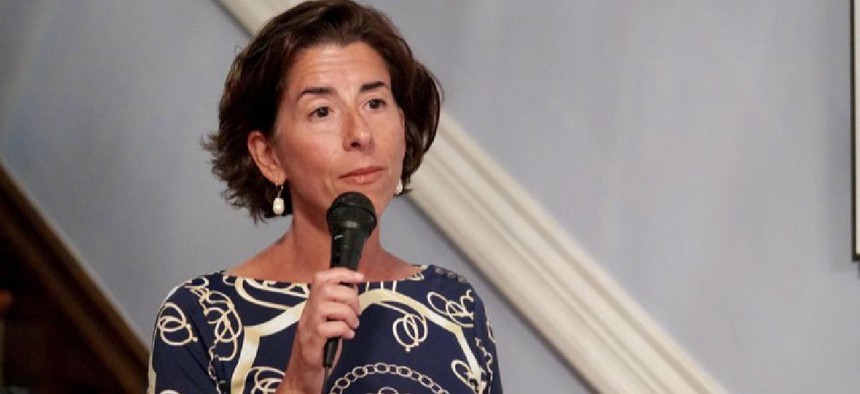Commerce digs into supply chain security

The Commerce Department wants to establish a new office that will work across the federal government and partner with the private sector to "get ahead of supply chain resiliency issues," Secretary Gina Raimondo said Thursday.

Gina Raimondo as governor of Rhode Island in 2018. (Image credit: Antony Ricci/Shutterstock)
Commerce Secretary Gina Raimondo told a House Appropriations subcommittee on Thursday that her department suffered "significant" damage as a result of the SolarWinds attack, and she stressed the need for government agencies to invest in a shift toward an intelligence-based cybersecurity approach as well as increasing attention to technology supply chains.
The damage "was significant," the secretary said, "and as a result we are taking [cybersecurity] very, very seriously."
Raimondo also provided further details about a proposed office within the Commerce Department tasked with addressing vulnerabilities in essential products, stemming from the administration's efforts to secure critical supply chains.
"The office is intended to help us deal with the challenges that we're seeing in our supply chains," she said. "I think we all realized during COVID how vulnerable some of our supply chains are."
The new office will focus on monitoring vulnerabilities across supply chains while creating an investment arm that would allow the department to partner with the private sector "to address vulnerabilities" and "get ahead of supply chain resiliency issues," the secretary said.
The secretary noted her own past experience struggling to acquire life-saving resources during the COVID-19 pandemic last year when she served as governor of Rhode Island, adding: "We couldn't get our hands on enough ventilators and enough [personal protective equipment]."
President Joe Biden requested $11.4 billion for the Commerce Department's fiscal year 2022 discretionary budget, a 27% increase from the year prior, while aiming to make critical investments in response to numerous crises, in addition to maintaining the department's existing programs. Lawmakers are still waiting on a detailed budget proposal from the administration.
The president signed an executive order in February directing federal agencies to identify vulnerabilities in supply chains and submit 100-day reviews which identify various steps the administration can take alongside lawmakers to protect essential systems.
The executive order also directed the Commerce secretary and secretary of Homeland Security to submit a report on supply chains for critical sectors and subsectors of the ICT industrial base within 100 days.



